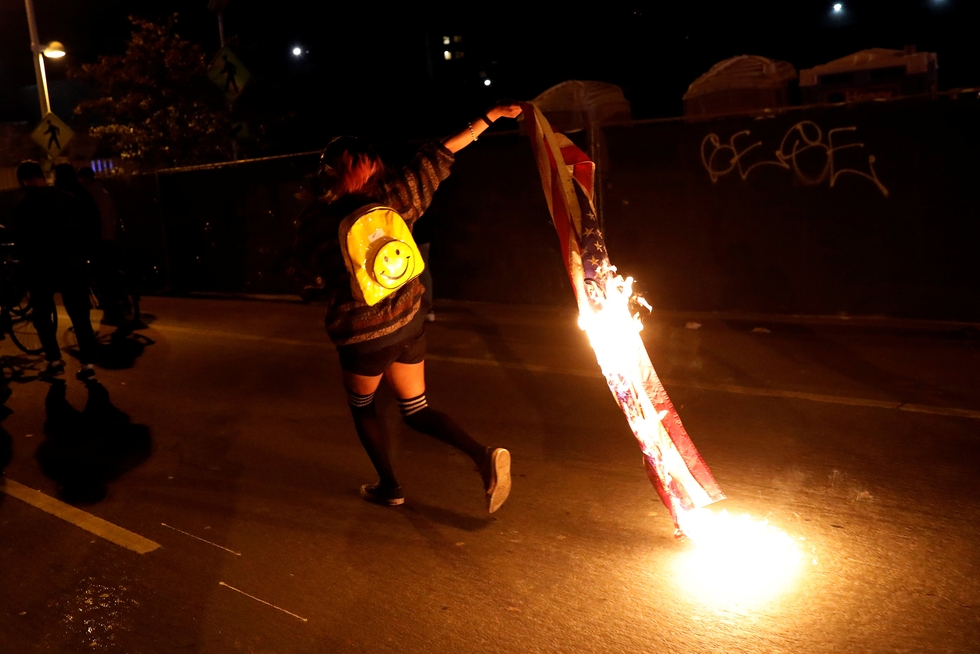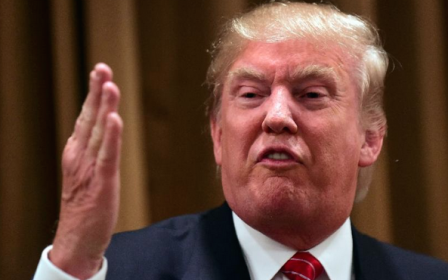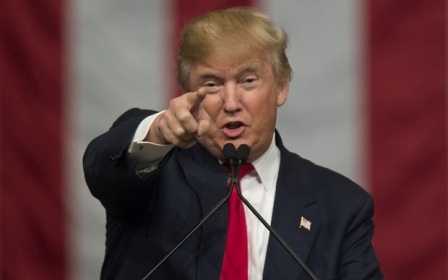Trump hit with bipartisan backlash for flag-burning tweet

President-elect Donald Trump's latest proposal - to jail anyone who burns the American flag - faced a backlash from politicians in Washington on Tuesday, including from within his Republican Party.
White House spokesman Josh Earnest succinctly noted that "the freedom that we all have to express ourselves in the way that we choose" is protected under the US Constitution.
"The vast majority of Americans, myself included, find the burning of the flag offensive, but we have a responsibility as a country to carefully protect our rights," Earnest said.
Stressing there was "bipartisan sentiment" on the sanctity of such rights, President Barack Obama's spokesman also said such rights applied to "being able to say whatever you want on Twitter," a sly reference to Trump's use of social media to bash opponents and the press.
The reasons for Trump's tweet, which came amid heightened speculation about whom he will pick for key cabinet posts including secretary of state, were difficult to decipher.
The US president-elect received polite but firm pushback from his allies in Congress.
"That activity is a protected First Amendment right, a form of unpleasant speech, and in this country we have a long tradition of respecting unpleasant speech," Senate Majority Leader Mitch McConnell told reporters when asked about Trump's suggestion.
"I happen to support the Supreme Court decision on that matter."
Other Republican lawmakers shared McConnell's view.
First Amendment protection
In 2005, then-Senator Hillary Clinton co-sponsored a flag protection legislation that proposed punishing individuals who burn the flag with up to one year in jail and a $100,000-fine.
The bill, which equated burning the flag with physical assaults and said abusing the national symbol "can be intended to incite a violent response rather than make a political statement," failed to pass.
The US Supreme Court ruled that burning an American flag was permissible in the name of freedom of expression.
In 2012, conservative justice Antonin Scalia explained the importance of differentiating between personal opinions and respect for the law.
"If I were king, I would not allow people to go about burning the American flag," said Scalia, who died early this year.
"However, we have a First Amendment which says that the right of free speech shall not be abridged, and it is addressed in particular to speech critical of the government. I mean, that was the main kind of speech that tyrants would seek to suppress."
The right is confined not just to words spoken or written.
"Burning the flag is a form of expression," Scalia said.
Theodore Boutrous, a constitutional law expert, told AFP that Scalia had joined the majority in the appeals case of Texas v. Johnson, which held "unequivocally" that flag burning is protected speech under the First Amendment.
"The Constitution protects all Americans, even those who act like they hold it in contempt," Boutrous said.
Meanwhile, Trump has selected Steven Mnuchin, a former Goldman Sachs banker and Hollywood producer, as Secretary of Treasury.
Mnuchin has no experience in government and was Trump’s finance chairman during the campaign.
As Treasury secretary, he will play a critical role in creating economic policies, including possibly reversing President Obama’s policies with Iran and Cuba and reinstating sanctions.
New MEE newsletter: Jerusalem Dispatch
Sign up to get the latest insights and analysis on Israel-Palestine, alongside Turkey Unpacked and other MEE newsletters
Middle East Eye delivers independent and unrivalled coverage and analysis of the Middle East, North Africa and beyond. To learn more about republishing this content and the associated fees, please fill out this form. More about MEE can be found here.




